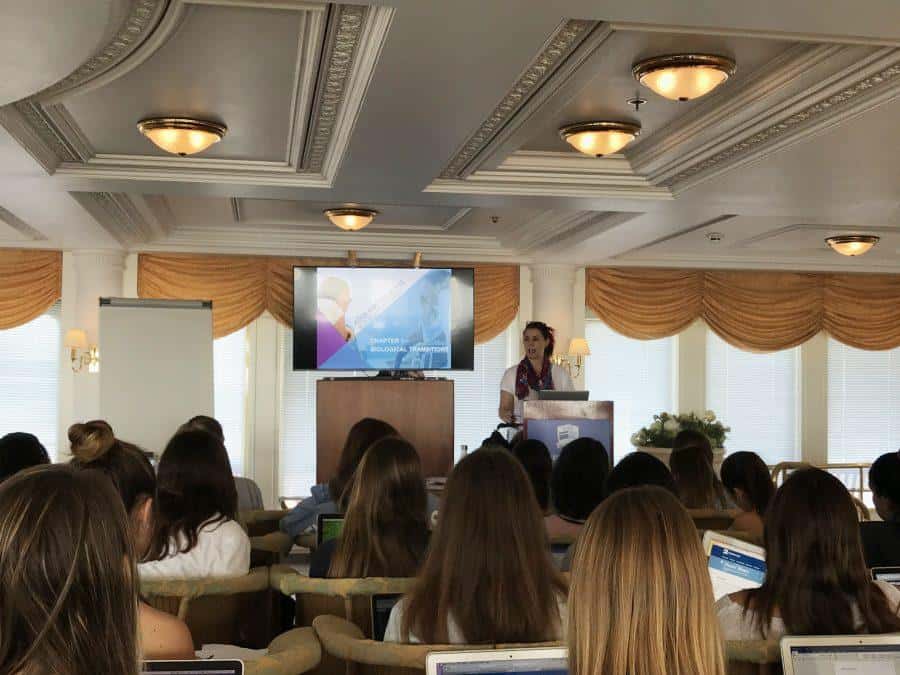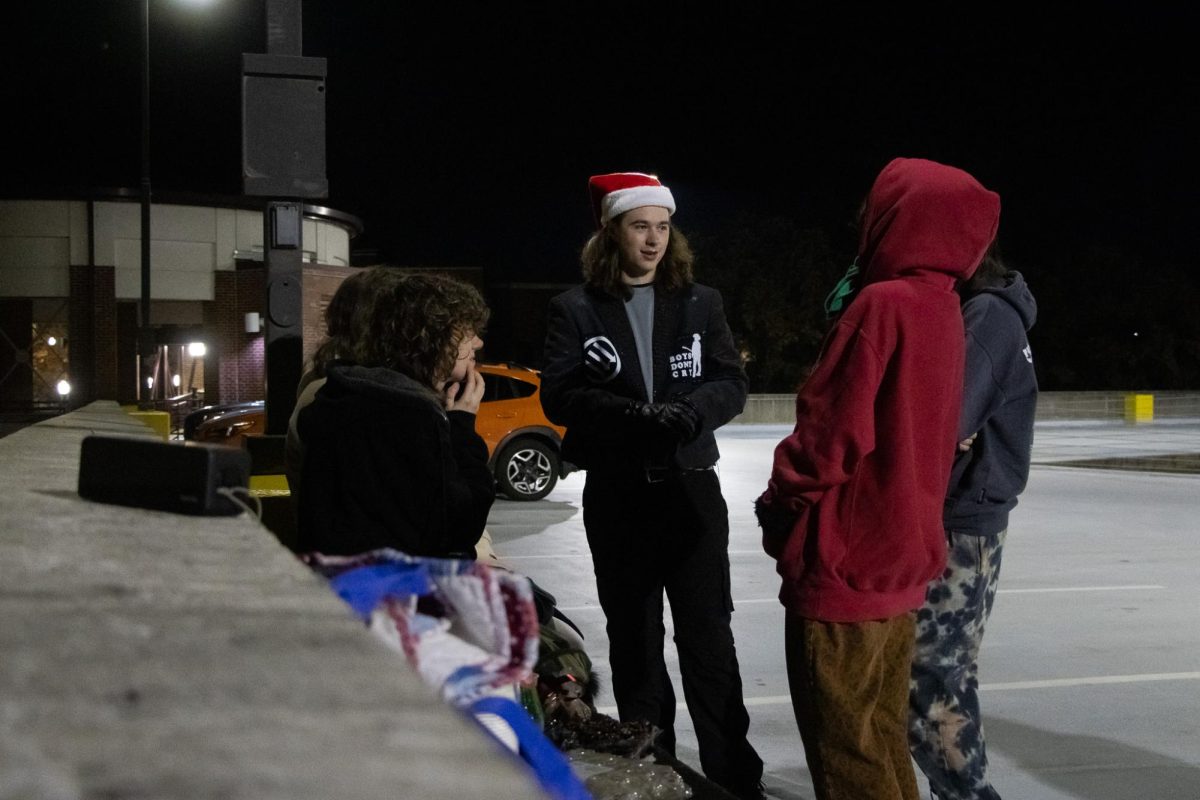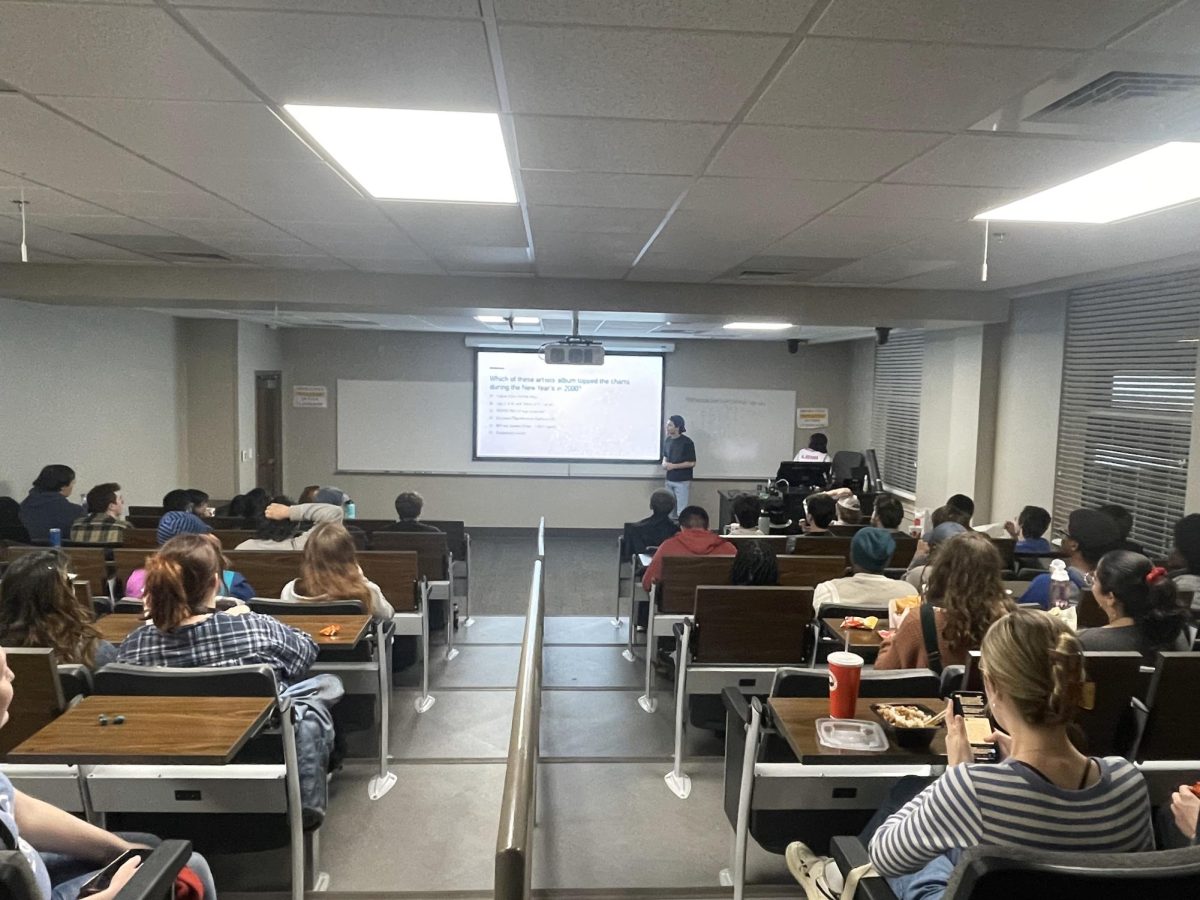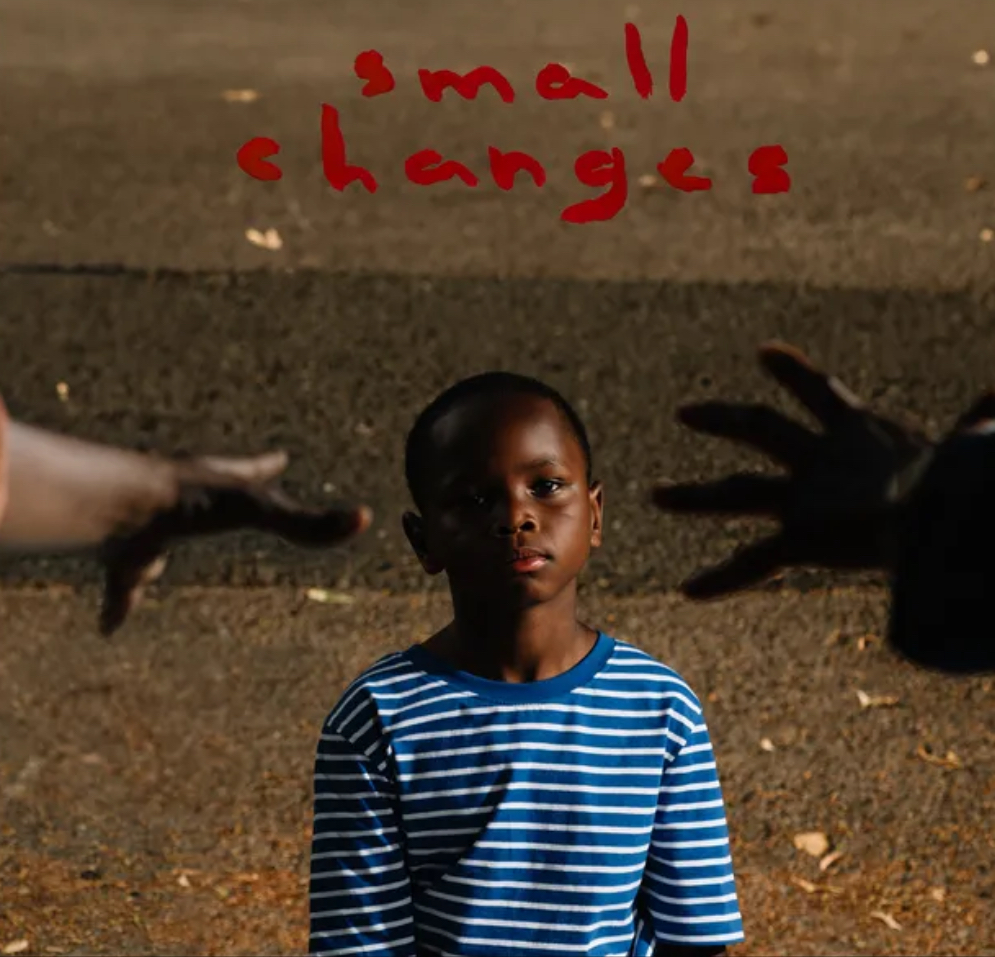Pink hair, hockey player and triathalon runner are three characteristics one might not expect from a professional forensic psychologist, but bright Patricia Zapf’s bright hair and athletic ability aren’t the only surprising facts about her; she’s also a teacher sailing with Semester at Sea.
“Semester at Sea is such a cool experience,” said Zapf, a previous University of Alabama professor. “I see it as a once-in-a-lifetime opportunity to travel, teach and learn.”
Zapf teaches three courses – adolescent, abnormal and forensic psychology – at Semester at Sea, a study abroad program where more than 500 students, faculty and staff members travel to countries all over the world while sailing on a ship.
Born and raised in Alberta, Canada, Zapf completed her PhD and masters in clinical psychology with an emphasis in forensics before she began her first teaching job in the Department of Psychology at the University in 1999.
“I loved the psychology department because it was so tight-knit,” Zapf said. “Almost everyone on faculty was from somewhere else, but we all found ourselves in Alabama — it was like this liberal bubble in a very conservative state. The students were wonderful and the faculty members were so supportive. I have only great things to say about my time there.”
Zapf’s younger brother was the one who inspired her passion for forensic psychology. After becoming a paraplegic from a hockey accident, her brother still maintained his adrenaline-rush-seeking personality. The fact that core aspects of his personality remained the same after a significant injury fascinated Zapf, and she began researching the correlation between crime and personality.
While she was teaching at the University, she saw the need for a higher level of practice in forensic psychology. She and her students collected 486 completed competency and insanity evaluations and checked for discrepancies between evaluators’ opinions and court opinions. This insight led Zapf to start Concept, a professional online training company for forensic psychologists.
“What we found was that a lot of the reports didn’t meet the standards that were expected by the law,” Zapf said. “It was clear how subpar some of those evaluation reports were, and it hit home the need to improve the quality of the work that we’re doing as forensic psychologists.”
On top of managing her business, Zapf continues to teach at John Jay College of Criminal Justice at City University of New York and conduct her research. She focuses on forensic evaluations and looking at people’s competency to stand trial.
“I always wanted to be a faculty member from the start,” Zapf said. “My love is research so I didn’t think twice about what I wanted to do.”
She became interested in Semester at Sea in 2016 while working in the Ukraine developing a tool to be used to select individuals for its new national police force. One of her colleagues had sailed before and suggested she look into it.
This spring will be Zapf’s first semester as a Semester at Sea faculty member, and she has already made an impression on the rest of the shipboard community.
“I signed up for the class because I knew my home school didn’t offer it, so I just jumped on the opportunity,” said Ellison Bonner, a junior at the University of Missouri. “Then once I saw who the teacher was I got really excited because I had studied about her in my other psychology classes and heard about her different court cases.”
Practicing her career at sea creates new opportunities and obstacles to experience. According to Zapf, forensic psychology is a relatively new field and she’s looking forward to comparing forensic psychology in other countries to the United States.
“A lot of the time we don’t really think beyond the United States, and so we’re always teaching our courses with American textbooks and talking about how things are in the U.S.,” Zapf said. “Even if I’ve taught the material before, I haven’t taught it with respect to different countries, which gives me an opportunity to also learn. I feel like I’m learning just as much as the students are, and we’re sort of making our way on this adventure together.”
After Semester at Sea, Zapf intends to focus on professional training and developing more ways of making forensic psychology information accessible to everyone. She plans to continue to travel and adventure while following her passion.
“Too many people get into careers for various reasons and it’s not their passion,” Zapf said. “Find your passion. That’s the one thing I would say to any student and the one thing I try and drill into my son’s head. Be happy. Life’s too short. Make it what you want.”









